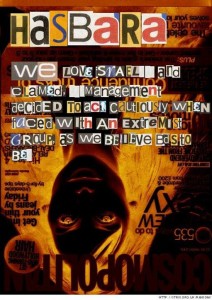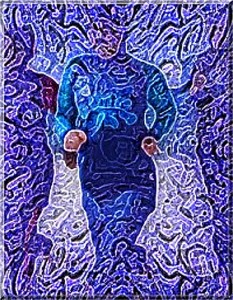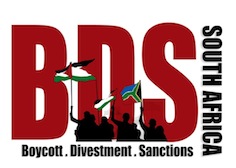 Last week, Salif Keita announced his decision to cancel his performance at the Jerusalem Festival of Sacred Music, held at the Tower of David in Occupied East Jerusalem, and funded by the American Zionist Shusterman Foundation. That the festival was held at such a location where Occupied people are routinely imprisoned, tortured, killed and their homes demolished for resisting Israel’s brutal Occupation, made a mockery of any pretense of “peace and reconciliation” through music.
Last week, Salif Keita announced his decision to cancel his performance at the Jerusalem Festival of Sacred Music, held at the Tower of David in Occupied East Jerusalem, and funded by the American Zionist Shusterman Foundation. That the festival was held at such a location where Occupied people are routinely imprisoned, tortured, killed and their homes demolished for resisting Israel’s brutal Occupation, made a mockery of any pretense of “peace and reconciliation” through music.
Many BDS advocates and organisations, including BDS France and Professor Farid Esack from the University of Johannesburg and Chair of BDS South Africa, attempted to persuade Salif Keita to cancel his gig and respect the boycott. Other artists – Matt Schofield and his band, The Matt Schofield Trio, and Chris Daddy Dave – already had cancelled their Festival performances. The initial announcement of Salif Keita respecting the boycott was made on Ynet. The festival facebook page also recorded the cancellation, stating:
“Salif Keita canceled his participation in the Jerusalem Festival of Sacred Music. A few hours before his departure for Jerusalem the Malian musician Salif Keita decided to heed the demands of the cultural boycott of Israel and to cancel his participation in the closing concert of the festival.”
Several hours later, a statement withdrawing endorsement for the boycott call was released, blaming BDS for alleged “threats, blackmail attempts, intimidation, social media harrassment and slander”. Regardless of the statement in his name, Salif is thanked for his cancellation. One might speculate that such an announcement could act as cover for insurance purposes, or “a tactic that some artists resort to when they do not wish to violate the Palestinian call to boycott Israel, but do not have the courage to take a political stance”, or even to shield artists from real threats from angry Zionists in the future. The statement resembles a list of Israeli hasbara talking points. Is it coincidental that Adam Shay, program coordinator and researcher from the Jerusalem Center for Public Affairs, which participates in Israel’s hasbara strategy, recommended in May 2013 to
“focus on direct contact with the performers, their producers, agents, or anyone involved in the decision to play or not to play in a specific location. These efforts should not be carried out by the public at large, but rather by professional policy analysts familiar with BDS operations and methods, who can put BDS slander in perspective and present an unbiased picture of reality.”
The only concrete example given in the announcement is “slander stating that Mr Keita was to perform in Israel, not for peace, but for apartheid”. Yet this is not slander, but based firmly in fact. Since Israel deliberately and consistently uses all artist breaches of the boycott to spray whitewash over its very real apartheid and oppression, adding artists and quotes to the propaganda site Creative Community for Peace that shamelessly lobbies artists not to cancel, the example given is spurious.
As a former Israeli Attorney General stated:
‘Despite its best intentions, Israel has created a system of separation in the West Bank which fits the textbook definition of apartheid. According to Michael Ben-Yair, Attorney General of Israel throughout the nineties, “In effect, we established an apartheid regime in the Occupied Territories immediately following their capture. That oppressive regime exists to this day.” He is not alone in asserting this perspective. Many notable Israelis like Meron Benvenisti, Akiva Elder, and Shulamit Aloni, to mention a few, agree that Israeli style apartheid is a reality.’
In 2009, the Human Sciences Research Council of South Africa (HSRC) study affirmed that Israel is practising both colonialism and apartheid in the Occupied Palestinian Territories, with these findings confirmed by the Russell Tribunal Cape Town session findings on Israeli apartheid.
Within Israel itself segregation is nearly absolute:
“For those of us who live here, it is something we take for granted. But visitors from abroad cannot believe their eyes: segregated education, segregated businesses, separate entertainment venues, different languages, separate political parties … and of course, segregated housing. In many senses, this is the way members of both groups want things to be, but such separation only contributes to the growing mutual alienation of Jews and Arabs.”
As Zazafl says:
Apartheid is wrong. This is not a threat.
Ethnic cleansing is wrong. This is not a threat.
War crimes are wrong. This is not a threat.
Asking you not to play in a state that does all the above to a people is not wrong. This is not a threat.
Asking you to listen to the Palestinian people and to simply not cross their picket line is not wrong. This is not a threat.
Asking you to set aside your privilege and activate your conscience is not wrong. This is not a threat. There are no threats. To you.
Whether or not artists insist they are playing for peace and not politics, the Israeli regime believes differently and uses all culture as a political instrument to conceal its oppression.
In 2005 Nissim Ben-Sheetrit of Israel’s Foreign Ministry stated:
“We see culture as a propaganda tool of the first rank, and I do not differentiate between propaganda and culture.” (Ha’aretz; 21/09/05)
As Brecht said: “Thus for art to be ‘unpolitical’ means only to ally itself with the ‘ruling’ group“. Gil Ron Shama, producer of the Jerusalem festival and Goodwill Ambassador for the Israeli Foreign Ministry (which ministry plays a major role in hasbara dissemination) to Muslim countries and with whom Salif Keita was to perform admitted “Here everything is political, even art“. Artists cannot breach the Palestinian-led boycott, play in Israel and ignore the fact that by doing so, they assist the Zionist regime in its concerted efforts to obscure its crimes against humanity committed daily against Palestinians.
Previously, there have been reports about other artists – Eric Burdon, Arch Enemy, Joy Harjo and Joker – receiving threats yet no evidence has been ever produced. Significantly however, the use of mythical ‘threats’ by Zionists to attempt to smear BDS and price-tag activists has been documented.
Evidenced by Israel pumping another NIS3m investment into the use of paid ‘covert’ hasbara troops to spread its fictitious promotional material, BDS and its human rights advocates are regarded as a serious threat by the Zionist regime. The campaign to ‘delegitimize the delegitimizers’ was formulated by the propaganda strategy outfit, the Reut Institute. In January 2010, Reut Founder and President, Gidi Grinstein, said “Therefore, an extraordinary effort is required to respond to and isolate Israel’s delegitimizers. We must play offense and not just defense.”
Propaganda and lawfare outfit NGO Monitor President, Gerald Steinberg, called in July 2013 ‘to respond to delegitimization “like we’re in a war. We need counterattacks.”‘
Commanded from the top by the Israeli Prime Minister’s Office, the network of Israeli hasbara is immense, very well-funded and highly organised. In contrast, BDS is a broad-based, unfunded grassroots movement of conscientious individuals around the world who are in solidarity with the call of the oppressed Palestinian people for justice, freedom and rights denied to them by apartheid, settler colonial Israel. As with the global boycott called by the ANC against apartheid South Africa, BDS activists act spontaneously on an ethical basis, in accordance with guidelines affirmed by Palestinian civil society, solidly grounded in human rights and international law, with no formal hierachy of command.
It is the Zionist regime and its oppressive practices which are threatened by BDS, a movement which has snowballed since commencing in 2005, with strong support from prominent people like Archbishop Desmond Tutu, Nigel Kennedy, Pete Seeger, Mira Nair, Cassandra Wilson, Ronnie Kasrils, Gil Scott Heron, Naomi Klein, Miriam Margolyes and many, many more.
Because the Boycott, Divestment and Sanctions movement is based in human rights and has firm anti-racist principles, the type of behaviour which the announcement in Keita’s name states is not commensurate with the moral grounds underpinning BDS. However, it is standard behaviour for Zionists who harass, slander and threaten daily. Therefore it’s not beyond the realm of possibility that if threats have been made, their source could be from Israel’s hasbara machine as part of a co-ordinated dirty tricks campaign.
A brief foray around the net reveals Zionist racism against the artist.
For example, on the original Hebrew Ynet cancellation story, the artist is excoriated by a racist Zionist: “let him go back to the trees he came down from – we don’t need him here”
On Salif Keita’s Facebook page wall, there’s more Zionist abuse against the artist:
Galit Levi: You speak about love and peace, but you act otherwise.
I think that you, who suffered ostracism yourself, about your color, you should be the first to call against this BDS, especially when they tell lies about the policy in Israel against Arabs who call themselves “Palastinians”.
Alon Idelson: You weren’t forced to cancel, you could come, but, you got chicken legs and afraid. Unlike many many other artists who got similar threats but gave the third finger to these threats & came to spread their message of peace & love to the people of Israel, which, as known, include jews, christians and muslims living together. Shame on you.
And bigoted Zionist attacks against Jews who support BDS:
TAAZ – The Anti Anti Zionist Haha, read Yael the bigot, by condemning the boycott he “did not breach the boycott”. It’s like telling Jews who escaped from Germany in 1933 that by leaving because the Nazis persecuted them, they supported the Nazis’ wishes. Oh wait – BDS says that too! https://sites.google.com/site/jewsagainstracistzionism/brenner-lenni-exposing-zionist-collaboration-and-complicity-with-the-nazis
TAAZ – The Anti Anti Zionist It’s always funny when professional anti-Israeli bigots blame those who fight their hateful messages for “being funded” by someone. Tsipi ___ is a professional activist in EU-funded organizations such as “Zochrot”. She’s getting her paycheck directly from associations that are dedicated to spread hatred, and then when she doesn’t like the fact that someone is exposing her lies, she uses terms like “Hasbara troll” and asks “who pays you”. But Tsipi is a professional hater not only against Israel – she will hate any group, as long as she is paid for it. On her blog you can read about her hatred of Israeli men, Israeli gays, and more – http://feminainvicta.com/
TAAZ – The Anti Anti Zionist You racist bigot, look at the threat on the left, it’s because of your bullying and harassment that he canceled. He rejects your hateful movement, and expresses his love for the people of Israel. Shame on you! You are on the verge of becoming a terrorist.
And Zionist attacks and threats against BDS activists:
TAAZ – The Anti Anti Zionist Falula, wherever you go, you will meet the Zionists who will name and shame you. We already understand that you and your gang have a problem with freedom of speech and think that they are the only ones who are allowed to spread their message. So no, in the real world, you will always find us defending against your lies.
With vile, genocidal Zionist racism:
Franco and Pepe Kalle Classic Round The reality is that Palestinians are no angels. They are the same people who use their kids and moms and girls as products to use. They are the ones who wanted to take over the Israel. Palestine should have not even existed. It is ashame that these guys cannot leave Israel and go to another country. Do not get me wrong, Israel has done some wrong but tell me what good Palestinian has done. Please some tell me. I am glad America is standing with Israel.
Perhaps the most ridiculously lurid and desperate Zionist accusation against BDS, which is a non-violent movement, is this one:
Adi Berger BDS is just like ansar al dine and the Al Qaeda groups who intimated and silenced artists in Mali.
Elsewhere on a Boycott Protest event wall, Israel’s anti-BDS Zionist propagandists also hate Jews who do not support their rightwing views.
Harvey Garfield: THE PROPHET ISAIAH WARNED THE JEWS that those seeking their destruction would emerge out of their own midst (Chapter 49, verse 17).
Jewish Leftists today serve as Jews-for-hire for every anti-Semitic and Israel-hating organization, magazine and web site on earth. These Jews who hate their own people are a tiny minority. Perhaps a mere five percent.
But they get around!
On another event wall for Tom Jones’ concert in Tel Aviv, there are serious, disturbing threats against BDS activists, and obscene photographs desecrating the Koran with human excreta which are unpublishable here, posted by proud Zionists:
Tim Collard: Won’t do any good. I have a photographic memory for these people’s names, and will happily pursue them all around the web.
Benji Hoshabyahu Arazi : BDS bullies belong in jail.
Robert Whyte: LEBANON BEING BOMBED AS I TYPE,SYRIA CHEMICAL WEAPONS, EGYPT ETHNIC CLEANSING OF CHRISTIANS, GANG RAPES IN PAKISTAN, INDIA……ETC.ETC………………AND THE JEW HATERS ARE HERE BECAUSE OF THE NATURAL COURSE OF EVOLUTION IN A MOSTLY PEACEFUL ISRAEL. YOUR ALL NAZI’S AND IF I GET MY WAY……….BEFORE I DIE OF CANCER……..YOUR GOING PAY……………THAT WILL BE MY LAST ACT ON EARTH. HOW SWEET IT IS!!!!!!!!!!!!!!!!
Robert Whyte I SEE IN YOUR EYES……..YOU GOT ARAB BLOOD. NOW I GET IT. MAYBE YOUR GRANDMOTHER SUCKED DIRTY ARAB COCK………..ICH !!!!!!!!!!
Aviel Mesayev: Fuck Palestine …..nothing is apartheid here..i join IDF soon and you guys be very sad
Racist settler colonial ideologies really bring out the worst in people.
Adam Shay of the JCPA specializes in battling the cultural boycott and hyping BDS ‘threats’. He provides the ‘professional’ Zionist hasbara perspective on combating BDS efforts to persuade artists to embrace the boycott of apartheid Israel online:
The aim of such efforts needs to be avoiding cancellation of concerts. A cancelled concert is a BDS victory. Every concert cancelled endangers future concerts, as it puts the burden of proof on the band/artists and requires them to justify and explain why they choose to play where others have chosen not to. Along the same logic, every concert that goes ahead eases future pressure on the next scheduled concert and the next boycott battle.
Clearly, the Israeli regime is threatened by boycott, divestment and sanctions, its propagandists are on the back foot, and with yet another performer cancelling their date with apartheid, BDS is winning!
Related Links
USACBI Responds to Unsubstantiated Claims of Threats
Where All Arabs Are Terrorists
When we contact artists, we do so in order to convince them, and to touch their minds and hearts. It would be totally against our principles to threaten them in any way whatsoever, and to do so would in fact be completely counter-productive. If indeed any artists should ever receive “threats”, we urge them to file a legal complaint. No allegations of threats have so far ever been substantiated in any way.
We are aware of the extremely strong pressure tactics applied by the State of Israel and its allies upon these artists, and we are therefore all the more grateful when they decide to cancel their performances in that country. However, we are saddened that, under the influence of other parties, and no doubt also for financial reasons, any artists who have refused to play in Israel, in a show of solidarity with the Palestinian people, should subsequently issue false statements inconsistent with the brave stance they took by boycotting Israel.
Artists who wish to boycott Israel can do so by cancelling a scheduled show and clearly explaining why, or by simply cancelling without providing a reason, if they so prefer. But they should not dishonour their brave act of solidarity by making violent and untruthful statements about our philosophy, our aims and our methods. The BDS campaign has never threatened anyone and will never do so. Our campaign is a peaceful, people’s campaign striving for the respect of international law and human rights.
Israel boycott campaigners reject “threats” claim by Afropop star Salif Keita
Dear Israel: Kick Out the Negroes : Letters from the Israeli Government Archives


